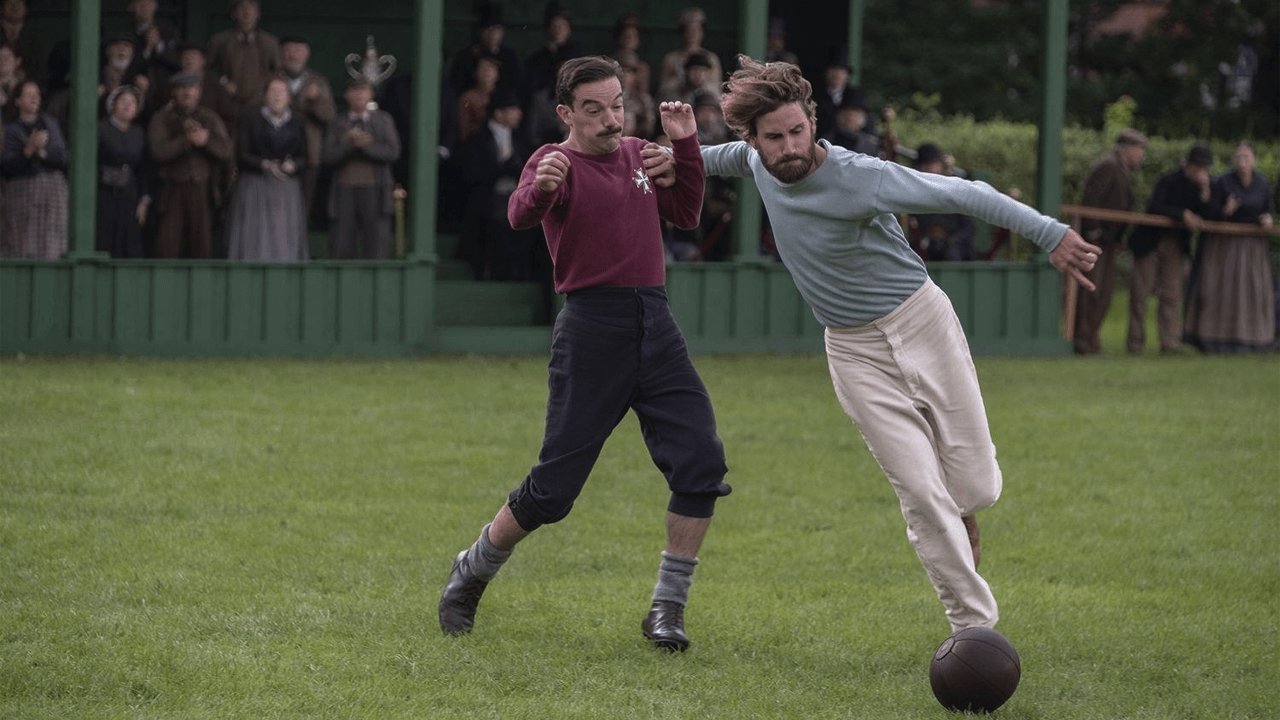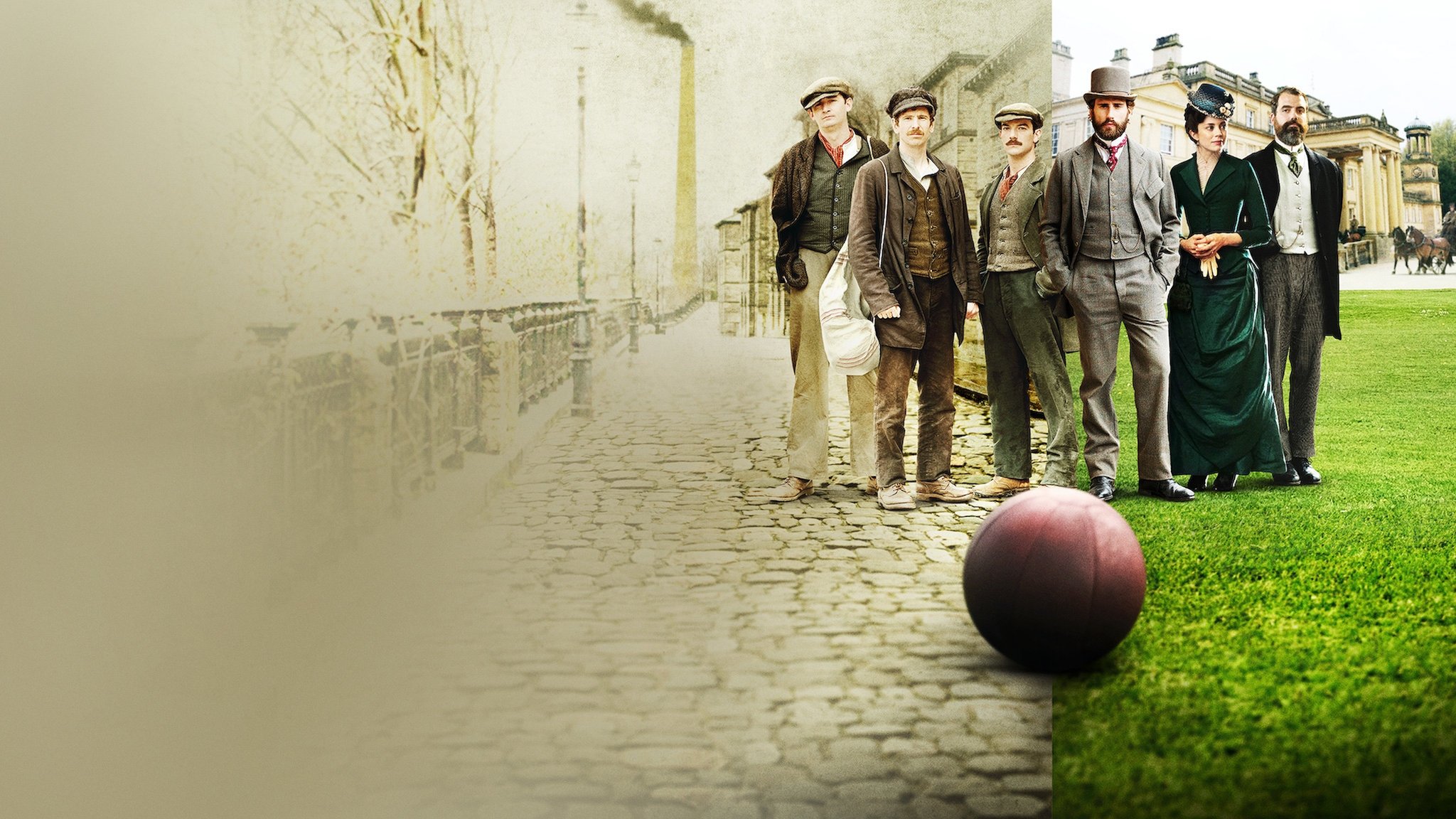In this particular column, I take a closer look at The English Game. The British series was created by Julian Fellowes (Downton Abbey) and revolves around the origins of modern football. I begin my quest at the main characters; Fergus Suter (Kevin Guthrie, Restless), Arthur Kinnaird (Edward Holcroft, Alias Grace) and Jimmy Love (James Harkness, The Nest). These characters all really lived, but I found several events that didn't actually happen in the same way as they did in the series.

Fergus Suter (Kevin Guthrie) and Arthur Kinnaird (Edward Holcroft)
Even though the friendship between Love and Suter is shown to have started way back, they didn't actually know each other before they started playing at Darwen. They both came from Patrick, but left individually for Darwen. Love actually arrived slightly before Suter, even though the series shows that they started their career there at the same time. At the time, football was still an amateur thing, but Suter was actually paid. This resulted in a lot of criticism, and this is also shown in the series. As payment for football wasn't tolerated, it was never registered. Because of that, it is hard to tell who was the first professional footballer. In the series, the first were Love and Suter.
After Suter started playing for Darwen, he left for Blackburn Rovers in 1880. In The English Game, John Cartwright - who owns Blackburn Football Club - offered Suter something he couldn't refuse. Suter then decides to leave for Blackburn. In reality there were two football clubs from Blackburn; Blackburn Olympic and Blackburn Rovers. Suter wins the FA cup whilst at Blackburn, or so it appears in the series. In reality, he wasn't the first working-class football team that won the FA cup. The club that actually won that title was the other club from Blackburn, Olympic. In the finale of 1883, Blackburn Olympic - the team without Suter - defeated the Old Etonians.
Fergus Suter (back row, third from the right) with the Blackburn Rovers
Back in 1870, football was a game that was mainly played by the more wealthy people of the United Kingdom. Arthur Kinnaird was part of that group. He worked in the bank of his family. Next to that, he was part of The Football Association, which organised the FA cup. He was one of the best footballers from his time, some dare even call him the first football star. In total, he played nine FA cup finals and won three of those. All these facts are confirmed in the series, but some of them deviated from reality.
In the series, Arthur and his wife, Mary Alma Victoria Agnew, weren't able to have children. In reality, Arthur and his wife had seven children, two of whom died at a young age. Their first kid was born in 1876, which was a few years before the events of the series.
Arthur Kinnaird, 11th Lord Kinnaird, circa1900
In the first episode of The English Game, a love story situation happens between Love and Doris Platt. Despite his name being an obvious reference to love, he was actually never married. In the series, his football career ends after a former teammate from Darwen tackles him during a game. His real career never ended due to an injury, but because he joined the royal navy in Liverpool. Love died due to a flue whilst on a mission in Egypt at the age of 24.
Even though the love between Suter and Martha Almond isn't the most important thing of the series, near the end he finds true love with her. Almond already has a young daughter, but the father was nowhere to be seen. The English Game takes place in a time when such a thing was still seen as a disgrace. It turns out that the father is John Cartwright. The married Cartwright didn't want to leave his wife for Almond. There is no information regarding the authenticity of that, but Suter did really marry Martha Almond in 1883.
Have I missed something interesting? Do tell me in the comment section.






